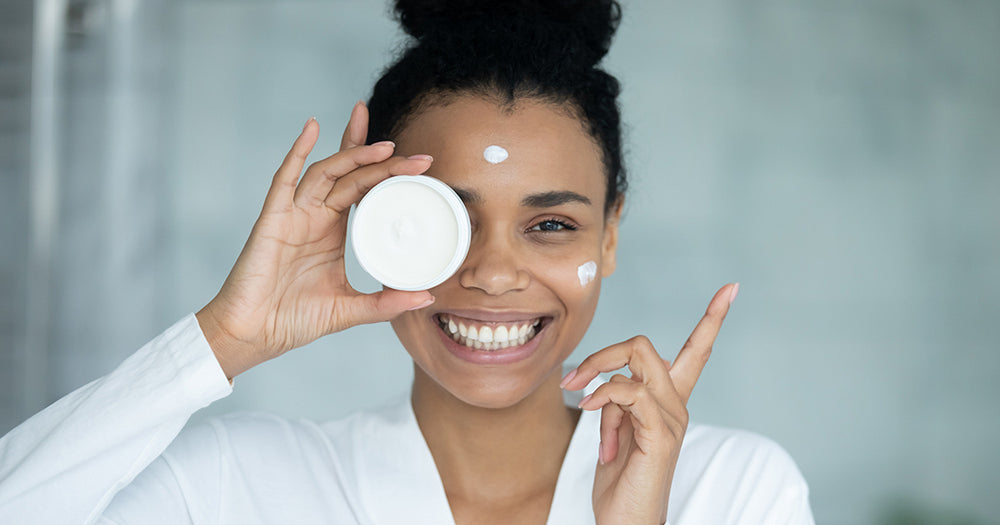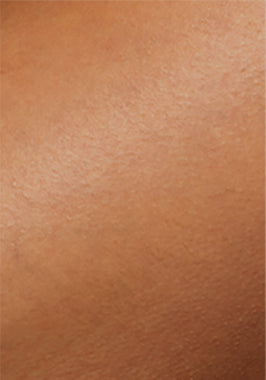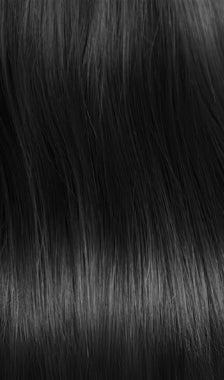IPL hair removal is a technique for removing unwanted hair using pulsed light. This broad spectrum light penetrates the hair follicles, heats them up and destroys them, giving you permanent to semi-permanent results. It is a somewhat painful procedure, but with advances there are now pain-free IPL devices for use at home.
The only concern is the problems with IPL hair removal for dark skin. A device that is not compatible with your dark skin can cause blisters, burns, hyperpigmentation and scarring. That's why it's important to have a clear understanding of IPL hair removal to protect yourself from these side effects.

- Part 1: How do IPL devices interact with hair?
- Part 2: How do IPL devices interact with the skin?
- Part 3: Skin tones and hair colours suitable for IPL
- Part 4: Hair removal methods for dark skin
- Part 5: Conclusion
How do IPL devices interact with hair?
You've probably heard many times that IPL hair removal devices aren't suitable for all hair types and colors. Before you understand this, you need to know how IPL devices interact with your hair.
The way IPL hair removal devices work is entirely dependent on melanin, and dark hair has more melanin. When an IPL device comes in contact with your body, the light is absorbed by the melanin in your hair and reaches the hair bulb or root. Since the hair bulb has a high concentration of melanin, the light energy accumulates in the hair and converts it into heat. This heat damages the hair follicles that are responsible for the growth of your unwanted body hair. This way, you get a permanent solution for hair removal.
How do IPL devices interact with the skin?
Because IPL devices use a broad spectrum of light, they don't just target your hair, but are also absorbed by your skin. When the light detects the melanin in your skin, it also affects the skin. The results can be both harmful and beneficial, depending on the area the device is targeting. For example, IPL devices can treat age spots or scar tissue by absorbing the melanin in them and breaking them down into smaller pieces. These pieces are then transported away from that area by your body.
On the other hand, when the devices target healthy skin with more melanin, a higher concentration of heat in that part of the body can cause redness, burns, inflammation and scarring.
Skin tones and hair colours suitable for IPL
Not all skin tones and hair colors are suitable for IPL hair removal. Let's find out if your skin color is compatible with the IPL procedure or not.

Skin tones suitable for IPL
The Fitzpatrick scale has divided skin tones into 6 categories (see below).
Skin tone I, the lightest skin tone, through skin tone IV, the olive/medium brown skin tone, are suitable for use with the IPL device. These skin types do not have enough melanin, so the device will not affect them much even if the light penetrates these skin types. In contrast, skin tones V and VI are not suitable for IPL because they have a higher concentration of melanin. The lower contrast between these skin tones and hair color can mislead the device and cause harmful results.
Hair colours suitable for IPL
The most common natural hair colors are black, brown, gray, blonde and reddish brown. When it comes to IPL treatment, the darker the hair color, the better the results.
Because darker hair contains more melanin, IPL devices work best on black hair and all shades of brown. Unfortunately, red, blonde and gray hair have less melanin, so IPL devices are not suitable for these hair colors.
Hair removal methods for dark skin
There are few IPL devices that are effective on dark skin, but even these require caution while handling. So, instead of taking any risks, you can try these hair removal methods to get a hairless and smooth body.

Depilatory creams
Depilatory creams work regardless of your hair or skin tone and are a completely painless method of hair removal. When you apply a depilatory cream, its chemicals dissolve your hair keratin and make the hair weak. When you wipe the cream off, your hair is wiped off too, so they are completely safe for you as long as your skin is not sensitive enough to react to the chemicals.
Waxing
Although it is a bit painful, waxing can be a good hair removal assistant for people with dark skin. There are hot and cold waxes for hair removal. They stick to your hair and when you pull the wax off, they pull your hair from the roots.
This way, you can stay hairless for 4-6 weeks with waxing.
epilator
Epilators are electrical devices with a "tweezer head" that pull your hair from the root without the use of cream, gel or wax. These devices only grab your hair and leave your skin untouched, making them a completely safe hair removal option for all skin types.
Additionally, if you remove your hair with an epilator, it may take up to 1 month or more for new hair to grow back.
Laser hair removal
In the past, laser hair removal was not a good option for people with dark skin. But that is over because the Nd:YAG laser is now suitable for all skin types. This laser penetrates deep near your hair follicles and eliminates them without damaging your skin.
It is a semi-permanent method of hair removal that gives you hair-free skin for years with minimal or no aftercare.

electrolysis
Electrolysis is an FDA-approved method of permanent hair removal. An electrologist uses a thin needle to send electricity to your hair follicles and damage their roots. This permanently stops new hair from growing and removes the hairs that are already ingrown. The method is a bit painful and time-consuming, but it's worth it for all skin tones and hair types.
Conclusion
IPL hair removal seems to be a perfect method for pain-free hair removal with long-lasting results. The pulsed light from an IPL device targets the melanin in your hair to destroy the hair follicles. However, if you also have dark skin, it can also attack your skin and cause a number of problems such as burns, scarring, hyperpigmentation, etc.
Therefore, it is not suitable for everyone and only those who have the right hair-to-skin contrast can use it. There are some devices for dark skin, but results can vary and you must handle them carefully during treatment.
Therefore, it is best for people with dark skin to consult an expert before any treatment to ensure that the treatment only brings good results and does not backfire.

























1 comment
sgchyycgue
Muchas gracias. ?Como puedo iniciar sesion?
Muchas gracias. ?Como puedo iniciar sesion?